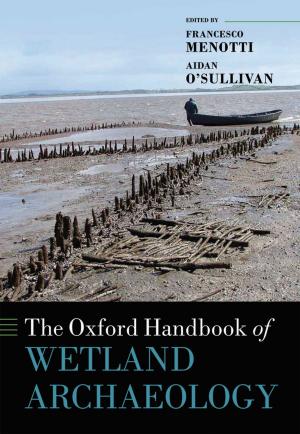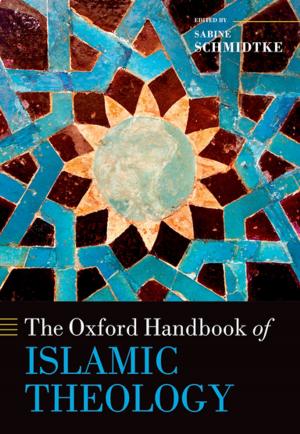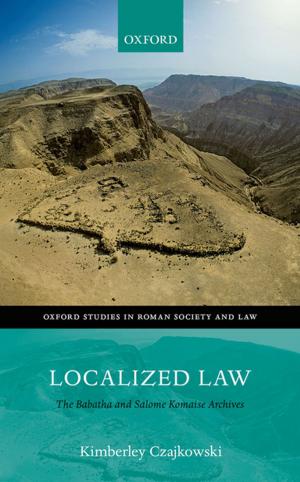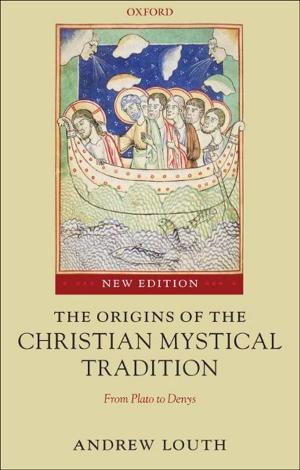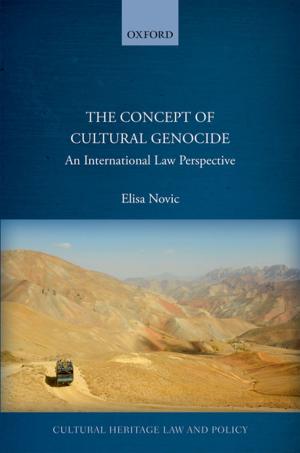The Protection of Intellectual Property in International Law
Nonfiction, Reference & Language, Law, Patent, Trademark, & Copyright, Intellectual Property| Author: | Henning Grosse Ruse-Khan | ISBN: | 9780191640438 |
| Publisher: | OUP Oxford | Publication: | August 18, 2016 |
| Imprint: | OUP Oxford | Language: | English |
| Author: | Henning Grosse Ruse-Khan |
| ISBN: | 9780191640438 |
| Publisher: | OUP Oxford |
| Publication: | August 18, 2016 |
| Imprint: | OUP Oxford |
| Language: | English |
This book examines intellectual property (IP) protection in the broader context of international law. Against the background of the debate about norm relations within and between different rule systems in international law, it construes a holistic view of international IP law as an integral part of the international legal system. The first part sets out the theoretical foundation for such a holistic view by offering several methodological frameworks for the analysis of norm relations in international law. These frameworks allow for different ways to conceptualise the linkages amongst international IP rules and those to other areas of international law. Part two then considers norm relations within the international IP system. It analyses the relationship of the two main IP conventions to the World Trade Organisation (WTO) Agreement on Trade Related Aspects of International Property Rights (TRIPS), as well as the relationship between TRIPS and Free Trade Agreements (FTAs). The third part discusses alternative rule systems for the protection of IP in international law: the intellectual creations element of IP is captured by the concept of creator's rights in international human rights law; while the property aspect of IP is protected by international investment agreements as well as European human rights treaties. Part four focuses on three core intersections between the international IP system and other areas of international law related to environmental, social and economic concerns. The areas examined concern international law on trade, biological diversity and climate change. As in part three, the perspective taken is that of the 'other' area and how it perceives its relations with international IP norms. In part five finally, the focus shifts back to the international IP system and the mechanisms it provides for taking into account the interests protected in other areas of international law.
This book examines intellectual property (IP) protection in the broader context of international law. Against the background of the debate about norm relations within and between different rule systems in international law, it construes a holistic view of international IP law as an integral part of the international legal system. The first part sets out the theoretical foundation for such a holistic view by offering several methodological frameworks for the analysis of norm relations in international law. These frameworks allow for different ways to conceptualise the linkages amongst international IP rules and those to other areas of international law. Part two then considers norm relations within the international IP system. It analyses the relationship of the two main IP conventions to the World Trade Organisation (WTO) Agreement on Trade Related Aspects of International Property Rights (TRIPS), as well as the relationship between TRIPS and Free Trade Agreements (FTAs). The third part discusses alternative rule systems for the protection of IP in international law: the intellectual creations element of IP is captured by the concept of creator's rights in international human rights law; while the property aspect of IP is protected by international investment agreements as well as European human rights treaties. Part four focuses on three core intersections between the international IP system and other areas of international law related to environmental, social and economic concerns. The areas examined concern international law on trade, biological diversity and climate change. As in part three, the perspective taken is that of the 'other' area and how it perceives its relations with international IP norms. In part five finally, the focus shifts back to the international IP system and the mechanisms it provides for taking into account the interests protected in other areas of international law.




